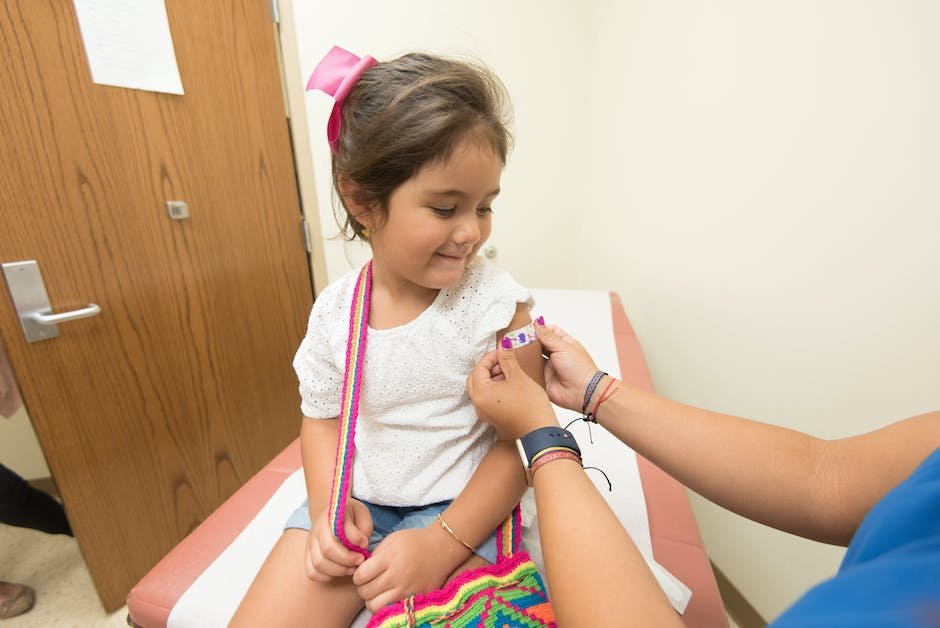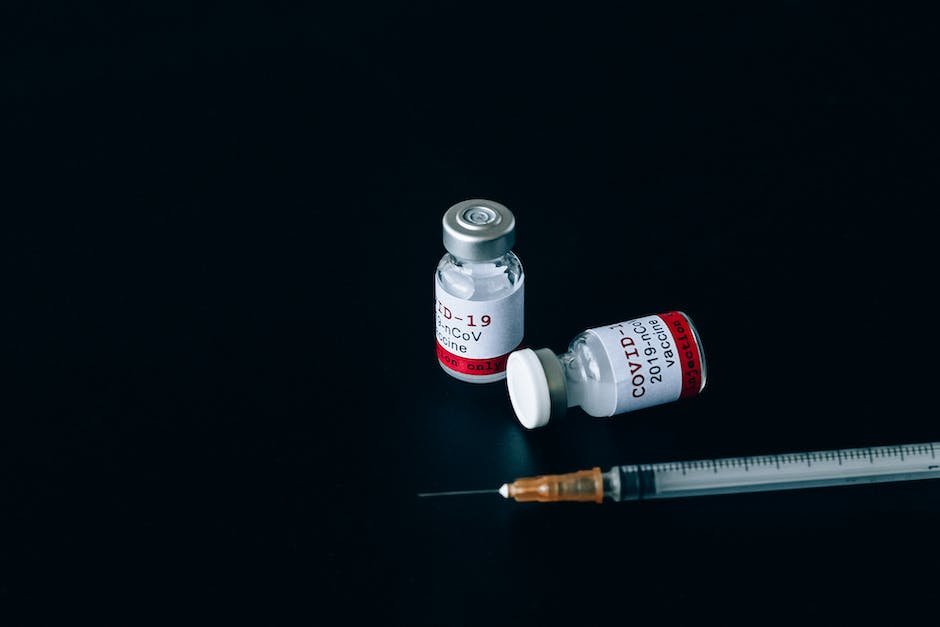
In a world rife with misinformation, it’s imperative you, as parents and caregivers, arm yourself with credible and accurate knowledge, especially when it comes to matters of your children’s health. This discourse aims to untangle the link, or lack thereof, between vaccinations, particularly the MMR vaccine, and developmental regression in children. By examining the landscape of vaccines and their alleged connection with autism, we will delve into common symptoms, offer a platform for parents to share their experiences, provide expert opinions, and most importantly, guide you on how to support your loved ones if regression symptoms appear.
Understanding Vaccines and Autism
Title: Shedding Light on the MMR Vaccine and Autism Connection
Hello, dear readers! Today, we’re going to peel back the layers and dive into a topic that’s been in the limelight for quite some time: the alleged link between the MMR vaccine and autism.
For countless lovely parents out there, this is a topic of considerable concern. After all, you’re making choices that will impact the little ones you care so deeply about. It’s only natural to want to gather every bit of reliable information possible.
Getting straight to the point, numerous exhaustive scientific studies conducted across the globe have found no evidence whatsoever linking the MMR (measles, mumps, and rubella) vaccine to the development of autism. Puzzled about where this idea came from? Understandable! Here’s a brief rundown of its history, and why it’s been largely debunked.
The myth initially sprouted in 1998, blossoming from a discredited research paper by former British doctor Andrew Wakefield. The paper suggested a link between the MMR vaccine and autism, however, it was later withdrawn due to significant procedural errors, undisclosed financial conflicts of interest, and ethical violations.
Since then, leading health organizations and researchers have undergone multiple extensive investigations and confirmed that there is no connection between the vaccine and autism.
For instance, a huge 2019 study tracing over half a million children in Denmark over eleven years found absolutely no increased risk of autism in children who had received the MMR vaccine. Even the children who had other risk factors for autism didn’t show an increased risk.
Similarly, an evaluation of all the best research on this topic concluded that there’s no link. The National Academy of Medicine, previously known as the Institute of Medicine, reviewed more than 1,000 vaccine studies and found no evidence of the MMR vaccine causing autism.
There you have it, folks! The fear that the MMR vaccine could cause autism is based on discredited studies and has been, time and again, scientifically proven to lack credibility. It’s worth noting that the autism-vaccine myth has led to a dangerous resurgence of measles and other preventable diseases, putting children who are too young to be vaccinated at risk.
Vaccinations, including MMR, are key to protecting our adorable little tots against dangerous diseases. They are extensively tested and continuously monitored for any potential side effects.
If you have lingering questions or anxieties, that’s alright. Concerns arise because you care so deeply for your children. In such cases, it’s best to consult with your child’s doctor or a trusted healthcare provider. These professionals are equipped with a wealth of knowledge that can help ease your worries and provide clarity.
Remember, every decision made is a stepping stone on the path of parenting. Embrace the journey, knowing that the love and care you pour into these choices set the foundation for your child’s wellness. Here’s to healthy, happy children and empowered, informed parents!

Common Symptoms of Regression
Signs of Regression
“Now, let’s venture into understanding an important point of discussion: what happens after the MMR vaccine? While it’s natural to be concerned about potential setbacks, rest assured that regressions are not commonly linked to the MMR vaccine. It’s vital to understand that any hesitations surrounding vaccination should not turn us away from protecting our little ones from preventable conditions such as measles, mumps, and rubella.
There are certain signs of regression usually observed in children after receiving the MMR vaccine, and they are commonly known as symptoms of ‘the three-day measles.’ These symptoms might include mild fever, reduced appetite, or body rash. These symptoms are short-lived, typically arriving about 7-12 days after the vaccine, and it resolves itself within a couple of days without any long-term implications on the child’s health.
Another typical symptom includes swelling of the glands in the cheeks or neck, noticeable about a week after receiving the shot. Rest easy, parents, this symptom is merely an indication that your tiny tot’s immune system is responding to the vaccine and forming the necessary antibodies.
In rare instances, some children may show temporary changes in behavior, such a feeling cranky or fussier than usual. A brief disruption in sleep patterns may occur too. It’s important to remember that these symptoms could also be attributed to other factors like teething, growth spurts, or even the common cold.
However, if at any point, your little one experiences symptoms that seem severe or persist over time, it is always crucial to contact a healthcare provider. They can help determine any underlying concern that might need attention.
Remember, vaccines are continually monitored for safety and efficacy. If there were significant regressions linked to the MMR vaccine frequently, the medical community would be the first to raise the alarm.
The comforting fact is, vaccines are administered not only after rigorous testing but also based on our children’s age and health status, ensuring they receive the best possible protection. This is why it’s vital to maintain a regular vaccination schedule – it helps keep them safe from diseases that we, as parents, wouldn’t dream of exposing them to.
Finally, arm yourself with the right knowledge. Consult healthcare professionals, read through reliable sources, and always, always prioritize the wellbeing of your children. As the old saying goes, ‘An ounce of prevention is worth a pound of cure!’
(Sign off, Author’s Name)
Real Experiences of Parents and Children
Understanding Child Regression Post-MMR Vaccination
In the quest to do what’s best for their bundles of joy, many parents find themselves inundated with varying information regarding vaccinations, particularly the Measles, Mumps, and Rubella (MMR) vaccine. We’ve discussed many viewpoints surrounding this topic, including debunked myths and scientific findings that assure safety and effectiveness. Adding to this discourse, we’ll delve into the phenomenon of child regression observed after receiving the MMR vaccine.
Child regression refers to a temporary, and often minimal, reversal in milestones or behavior. After having their MMR shot, it’s not uncommon for some children to experience mild symptoms that can be mistaken for regression. While these observations may be concerning initially, it’s crucial to understand that they tend to be fleeting and rarely pose any long-term impacts.
Some of the commonly reported signs include altered behavior and changes in sleep patterns. Children may seem unusually fussy or irritable and may have disrupted naps or nighttime sleep. It’s important to remember that these alterations in behavior are often short-lived, typically lasting only a few days.
Another noted observation is swelling of glands in the cheeks or neck. This symptom is a natural response to the vaccine as the body’s defense system gets to work. It’s not a sign of disease, but rather an indication of the body building protection against these illnesses.
Being watchful caregivers, parents may observe these regressive signs and worry about a correlation with the MMR vaccine. However, these changes could also be related to other factors like teething, development milestones, illnesses, or changes in routine. In fact, coinciding childhood transitions like starting daycare or welcoming a new sibling can also bring about behavioral changes.
Despite these temporary changes, the benefits of adhering to a consistent vaccination schedule can’t be overstated. Timely vaccinations can prevent potentially severe diseases and play a critical role in fostering a healthy community.
Remember, it’s always the safest choice to contact your healthcare provider in case of severe or prolonged symptoms your child may experience after vaccination. They have the knowledge and expertise to accurately assess your child’s condition and provide quality advice and treatment specific to his or her needs.
Furthermore, it’s worth mentioning that the World Health Organization (WHO) and the Centers for Disease Control and Prevention (CDC), among other health bodies, continuously monitor the safety and efficacy of vaccinations. They strive to ensure that vaccinations, like the MMR vaccine, contribute to public health positively and safely.
Indeed, the journey of parenthood can feel overwhelming at times, making it imperative to seek knowledge and consult trusted healthcare professionals for making informed decisions. At the end of the day, as parents, our most significant responsibility is to shape, guard, and enrich the world of our children. Let’s keep building communities that nurture the wellbeing of our little ones, one informed choice at a time.

Experts Opinion on MMR Vaccine and Regression
Just as every person is an individual, every child’s reaction to the MMR vaccine can also vary. While the vast majority of children have no noticeable signs, there are some who may display mild reactions post-vaccination. So, what do medical professionals say about child regression following the MMR vaccine? Let’s delve into it.
Child regression following MMR vaccination is a phrase that some parents use to describe temporary changes in their child’s behavior, sleep pattern, or development. Medical professionals, however, seek to clarify that these symptoms can occur regardless of vaccination and are usually only temporary.
It’s critical to understand that while some children may seem to regress after immunization, this isn’t typically a cause for concern. For instance, some kids may temporarily exhibit changes in sleep patterns or appetite, which can cause worry for parents. Yet, most often, these changes are short-lived and resolve without need for medical intervention.
These transient responses can sometimes include swollen glands. This reaction, however, is a natural part of the body’s immune response to the vaccine’s components. The swelling of glands, particularly in the neck region, is indicative of the immune system at work—learning to fight measles, mumps, and rubella.
It’s also worth noting that other factors might contribute to the symptoms parents notice around the time of vaccination. Illness, teething, changes in routine, or even a growth spurt can cause similar seeming regression. It’s essential to assess all possibilities before attributing any perceived regressions directly to the MMR vaccine.
For any persistent or severe symptoms post-vaccination, it’s crucial to consult with a healthcare provider. They are equipped to assess the child’s health accurately and provide professional advice. Remember, keeping in close contact with healthcare professionals is key to staying informed and making the best decisions for a child’s well-being.
Despite the likelihood of minor reactions, healthcare professionals reinforce the importance of maintaining a regular vaccination schedule. Our children aren’t just protected from these dangerous diseases themselves; by keeping up-to-date with their vaccines, they also maintain the protection amongst their peers, particularly those who are too young or unable to be vaccinated.
The topic of child regression following the MMR vaccine is multifaceted. That’s why it is so important to engage in conversations with our children’s pediatricians and caregivers, gathering reliable and science-backed information. These foremost caretakers of a child’s health are the most equipped to guide parents and ease any fears or misgivings.
As parents, it is our role to do all we can to ensure our children grow up healthy and strong. While the internet can be overflowing with varying opinions on child care and vaccinations, it’s the wisdom of healthcare professionals we should lean on when making decisions that could impact our children’s future.
In conclusion, child regression following the MMR vaccine is not permanent or damaging; it’s a temporary response at most. It’s essential for parents to have open discussions with their healthcare providers, adhering to vaccination schedules and prioritizing the well-being of their children. Vaccinations, after all, are a powerful tool we have in our arsenal to protect our little ones from life-threatening diseases.

Ways to Handle and Support Your Child
When it comes to our precious kiddos, a slight change in their behavior can make us parents uneasy – am I right? It’s all part of being protective moms and dads! If you’ve recently noticed any regression symptoms in your child after their MMR vaccination, you might be understandably wondering why. Now before you jump to conclusions, let’s talk through this together.
Regression symptoms can sometimes present themselves shortly after an MMR vaccination. These might be changes in behavior, disruptions in your child’s sleep patterns, or alterations in their developmental traits. It’s crucial to remember that these changes can happen with or without vaccination.
Your little one might have a varying sleep pattern or a sudden change in appetite. This could also be related to milestones in their life like their first day at school or even a new sibling! Stressful changes in their little world can cause reactions that look similar to regression symptoms.
Does your child have swollen glands after their MMR vaccine? Try not to panic. This reaction can be quite standard, and it simply shows that the body is reacting against the virus, helping build immunity. Sometimes, these reactions are mistaken as regression symptoms, which creates unnecessary concern.
And, it’s not only the MMR vaccine. A lack of sleep or a change in diet can also trigger temporary changes in habits and behaviors. When you notice these signs, the best course is to give it time to pass steadily while keeping an eye out for any severe or persistent symptoms.
In the event of alarming symptoms, don’t hesitate to consult your healthcare provider. They are your most reliable source of professional advice, able to guide you based on their years of training and experience.
Maintaining a regular vaccination schedule throughout your child’s early life is of utmost importance for their health. Childhood immunizations provide a strong line of defense against preventable illnesses that pose serious risks.
Arm yourself with reliable, science-backed information on vaccinations. Misinformation can lead to unnecessary fear and doubt. Consulting with trusted healthcare providers and referring to reputable health organizations is a strong step towards informed parental decision-making.
Remember, our ultimate goal is always about ensuring the wellbeing of our children. When in doubt, don’t forget, your healthcare provider is always ready to assist.
Vaccinations, including MMR, remain a powerful and necessary tool in maintaining overall child health and disease prevention. Be patient, stay informed, and know that transitional phases are just a part of their growing-up process. The precious smiles, peals of laughter, and achievements – big and small – all make this great parenting adventure worth it. Always remember that you’re doing a great job!

Every child is unique and so is their growth journey. While fluctuations and changes in behavior can be a part of a child’s natural development cycle, parents must always consult healthcare professionals to reconcile their fears and concerns. Personal experiences and expert opinions reveal that the MMR vaccine – like any other vaccine – is designed for the child’s wellbeing. The cornerstone of confronting any challenge, including potential signs of regression post-vaccination, is solid communication, understanding, and patience. Despite the hardships of ambiguity and concern, it is important for parents to remember the unchanging fact – your love and support form the strongest vaccine your child can ever receive.




